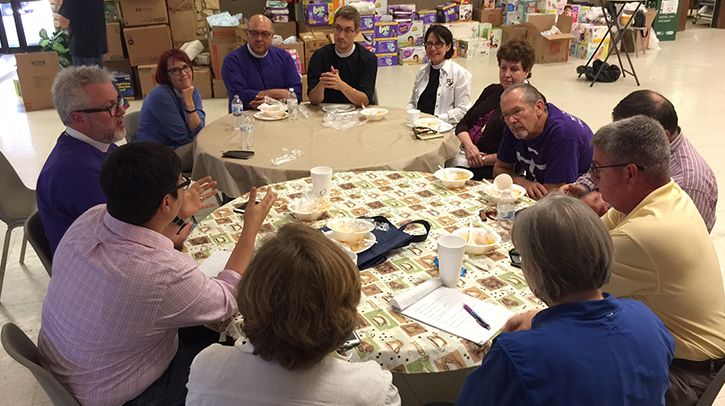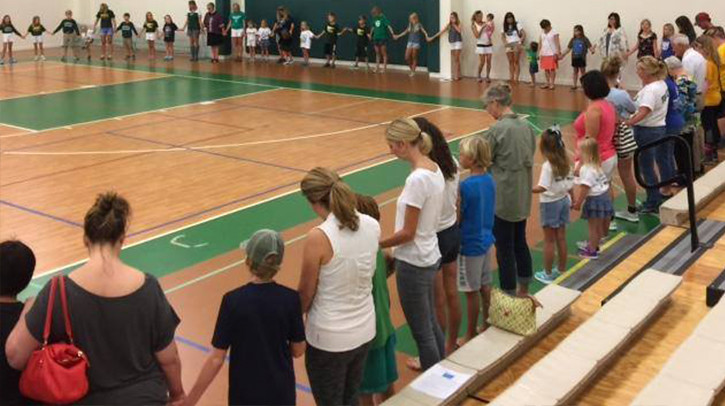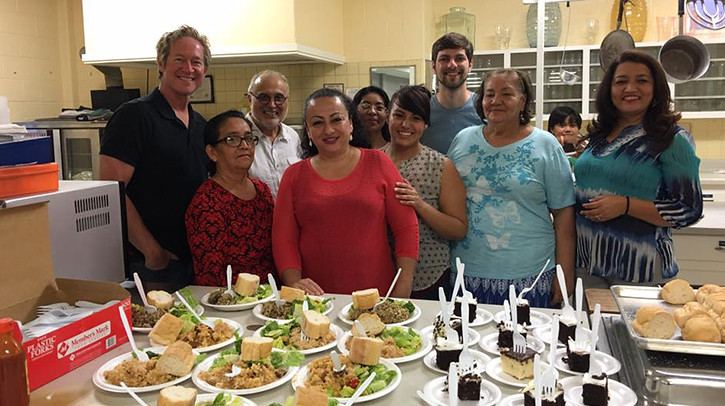Loving God, Yourself and Others in Disaster Response

Many Christians know that the greatest commandment is to love God with all of our heart, soul and mind. We are also commanded to love our neighbor as we love ourselves (Matthew 22:37-40). The thing about that second commandment that has always interested me is that it tells us that the way we love others should resemble the way we love ourselves. I am reminded of both of these commandments when I see how Episcopal Relief & Development’s partners respond to disasters.
Episcopal Relief & Development is not a first-responder organization. We don’t wait for a disaster to happen, then immediately arrive to rescue folks. There are organizations who already do that very well. Instead, we find it much more effective when we work with communities and let them take the lead.
Our work begins by partnering with dioceses and congregations, in many cases well before a disaster happens. The Church is there before a disaster happens, during the peak of a disaster and long after the TV cameras have gone, the Church will still be there. That is why we partner with dioceses and congregations, because they are the bedrock of their communities – called on by Jesus to care for the most vulnerable among them.
Starting with the second great commandment, our partners are encouraged to begin with self-care. In fact, until a person knows that they are secure and safe, they really cannot serve others. It’s similar to the safety demonstration on an airplane when they tell you to make sure you secure your own oxygen mask before helping others. Before you can care for your neighbor, you first have to care for yourself.
My colleagues begin with this simple message when talking with communities that have experienced a disaster: Start by caring for yourself, then care for your loved ones, then reach out to others in your congregation who will be your partners in response, then you can help the community. Self-care is also an ongoing process and is the number one priority of my colleagues in the United States Disaster Program and the volunteers in the Partners in Response program. This group of staff and volunteers equip others to care for themselves so that they can best care for others.
Deacon Elaine Clements, with our Partners In Response team, reminds those responding locally to a disaster that they will be cared for throughout the duration of the response. They are also encouraged to go back to their usual routines. When it’s safe for them and their congregation to return to worship, do that. If they regularly have an Alcoholics Anonymous meeting or a food pantry or work with the homeless, keep those things going. They explain that disaster recovery is not the best time to take on something new.
Our responders are remarkable people. They find out what their most vulnerable neighbors need and try to give it to them. They do this with the assets they have such as church buildings, washing machines or even vehicles. Many times, the generosity of others throughout The Episcopal Church might provide our partners with gift cards to major stores where folks can buy food, medicine, diapers and other needed items. These small cards can go a long way in sharing love and care for others.
And that brings me back to loving God with all our heart, soul and mind. When we act to restore the most vulnerable in our communities, we reflect God for our neighbors, giving them a sense of what it means to love, including the love of self. When we show this love to others, we show God to others, because God is love.
Please pray for the partners of Episcopal Relief & Development who are actively responding to disasters at this time. Pray that they will have the tools they need to care for themselves, the resources and planning they need to meet the needs of their communities and that they will know the grace of God as they respond in love to the needs of others.
In this video compilation, Episcopal Relief & Development US Disaster Team staff and Partners in Response provide tips around self-care and how to use already existing assets for ministry in times of disaster. Take a moment to watch:
Make A Gift To The Hurricane Relief Fund
Resources
Stay updated on Hurricane Harvey Response: episcopalrelief.org/harvey
Stay updated on Hurricane Irma Response: episcopalrelief.org/irma
Check out Episcopal Relief & Development’s Preparedness Resources for disaster preparedness tips
Read “Hurricane Harvey 2017: What Can I Do To Help?“
Read “Lessons from Katrina and How to Help After A Disaster“
I’m Ready to Serve!

Sean McConnell is the Senior Director of Engagement at Episcopal Relief & Development.
Images: Top – Partners in Response meeting, St. Stevens in Beaumont. Attribution: Eric Moen, Episcopal health Foundation; Middle 1- Community Prayer Event held on Trinity Episcopal School’s campus in Galveston. Attribution:http://bit.ly/2vVOhau; Middle 2- Women of San Pablo served jambalaya to 200 and took plates to those still stranded in apartments because their cars were lost in the floods. Attribution: http://bit.ly/2vWnn2o




